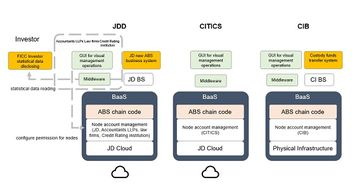Blockchain Technology: Understanding Its Impact and Applications
The article aims to give a comprehensive overview of blockchain technology, describing its core concepts, functionality, and far-reaching implications across various industries. It will also delve into challenges and future trends in the blockchain landscape.
The article aims to give a comprehensive overview of blockchain technology, describing its core concepts, functionality, and far-reaching implications across various industries. It will also delve into challenges and future trends in the blockchain landscape.

What is Blockchain?
Blockchain is a decentralized and distributed digital ledger technology that ensures the transparency and security of transactions across various networks. Unlike traditional databases, where data is stored on centralized servers, blockchain employs a network of computers, or nodes, to maintain a synchronized record of transactions. The fundamental units of data in a blockchain are called blocks, which contain transaction details and are linked to each other through cryptographic hashes.
One of the most notable characteristics of blockchain technology is its immutability. Once data is entered into a block and added to the chain, it cannot be altered or deleted. This feature enhances trust among users, as they can independently verify the integrity of the data without relying on a central authority.

Key Components of Blockchain
Several critical components define how blockchain operates. These include:
- Consensus Mechanisms: These protocols ensure all participants in the network agree on the validity of transactions before they are added to the chain.
- Smart Contracts: Automated contracts that execute when predetermined conditions are met, enabling transactions without intermediaries.
- Encryption: Security measures that protect data integrity and confidentiality within the blockchain.

Applications of Blockchain Technology
Blockchain technology’s versatility allows it to be implemented across numerous sectors, including:
1. Finance: Blockchain can streamline payment systems, enhance security, and facilitate cross-border transactions at lower costs.
2. Supply Chain Management: By providing transparency and traceability, blockchain aids in monitoring the movement of goods from manufacturers to consumers.
3. Healthcare: Enhancing patient records’ security, blockchain ensures that sensitive health information is accessible only to authorized parties.
4. Voting Systems: Blockchain can facilitate secure and transparent elections, reducing the risk of fraud.
Challenges Facing Blockchain Adoption
While blockchain holds great potential, several challenges hinder its widespread adoption:
- Scalability: Handling large volumes of transactions swiftly remains a technical hurdle.
- Regulatory Concerns: Uncertainty surrounding regulations can deter businesses from integrating blockchain.
- Energy Consumption: The high energy requirements of certain consensus mechanisms raise sustainability concerns.
In summary, blockchain technology presents a revolutionary approach to data management and transaction processing. Its transparency, security, and versatility across various industries highlight its potential to transform traditional systems. However, challenges such as scalability and regulatory compliance must be addressed to unlock the full benefits of blockchain technology in the future.



